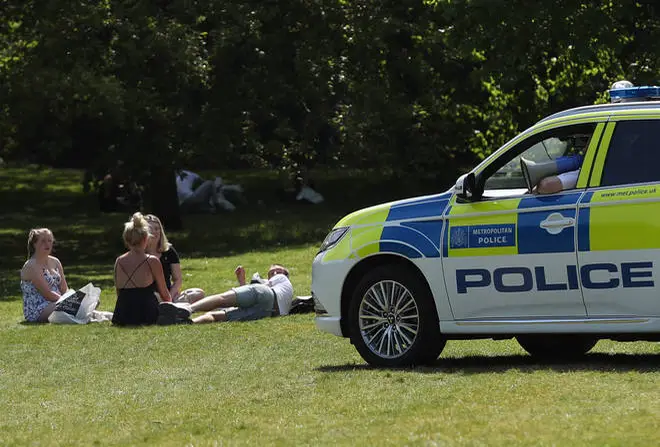
Oli Dugmore 4am - 7am
31 July 2020, 14:46

The chair of a policing body has said Boris Johnson's new coronavirus regulations will be "difficult, if not almost impossible, to enforce".
The chair of a police federation which represents rank and file officers has said new regulations announced by Prime Minister Boris Johnson at a Downing Street briefing on Friday will be hard to enforce.
The officer was speaking after the Government said they will pass new laws to enforce the changes to meeting people in private homes and gardens.
It comes after a planned easing of England's lockdown has been postponed a day before it was due to come into effect.
Earlier it was announced that people from different households in Greater Manchester, parts of east Lancashire and West Yorkshire would be banned from meeting each other inside their homes or in gardens following a spike in virus cases.
Read more: Boris Johnson's major coronavirus announcement - what does it mean for you?
The chairwoman of Lancashire Police Federation, Rachel Hanley, said: "The new measures have come as a huge blow to people who were just starting to see light at the end of the tunnel.
"This is no different for our colleagues who live and work in the affected areas.
"The practicalities of policing this latest change in regulations will be challenging, but policing will do all it can to keep the public safe. We do though need the public to support us.
"As per the current guidance, officers will be doing all they can to encourage people to do the right thing, without resorting to enforcement.
"Parts of the new regulations will be difficult, if not almost impossible, to enforce and sadly I fear it will once again be the already stretched police service taking the brunt of peoples' frustrations."
Mr Johnson said that, while most people are following the rules, there will be a "greater police presence" to ensure the public is adhering to the requirements around face coverings and stressed that local authorities can close down premises and cancel events which are not following the guidance.
Explained: Coronavirus lockdown - government imposes strict restrictions in North of England

Boris Johnson announces delay to lockdown easing
The Government have said action will be taken against those that break these rules, including asking people to disperse and issuing fixed penalty notices (starting at £100 – halving to £50 if paid in the first 14 days – and doubling for subsequent offences).
Read more: Plans to further ease lockdown measures in England scrapped, says PM
National Police Chiefs’ Council Vice-Chair, Chief Constable Dave Thompson said: “Coronavirus is still a real and deadly threat so the prospect of rising cases is a real concern. Measures are in place to limit the spread of the virus and save lives. We fully understand that this is a challenging period for many and we thank the majority of people for following the measures.
“Large gatherings both indoors and outdoors are still unlawful, and it is mandatory to wear face coverings on public transport, in shops and in some other enclosed spaces. We all have a role to play limiting the spread of this deadly virus so it’s vitally important we all familiarise ourselves with and follow the public health measures as they apply in local areas. Police officers will continue to play their part in enforcing these regulations.
“Officers may direct unlawful gatherings to disperse, direct any person from the gathering to return home, and remove a person to the place they are living. Those who flout the rules risk being given a fine.
“All businesses, local authorities and responsible agencies should play their part in encouraging the public to comply with the regulations or enforcing them where appropriate.”
Other measures due to be lifted on Saturday, including allowing small wedding receptions and reopening bowling alleys and casinos, have been delayed for at least two weeks.
And in a strengthening of precautions, Boris Johnson announced that face coverings will become mandatory in indoor settings such as museums, galleries, cinemas and places of worship from August 8.